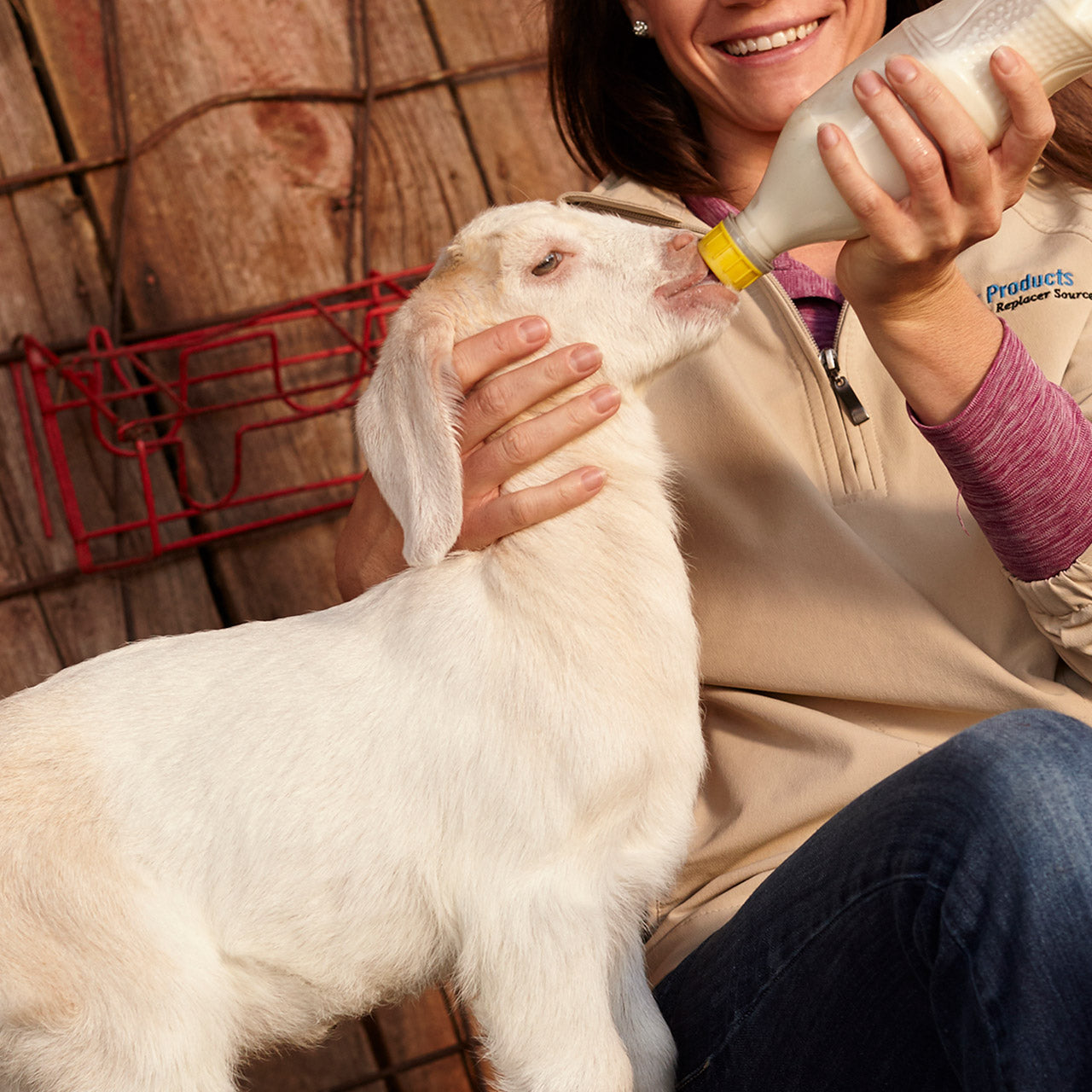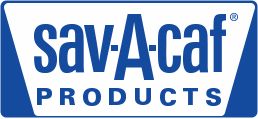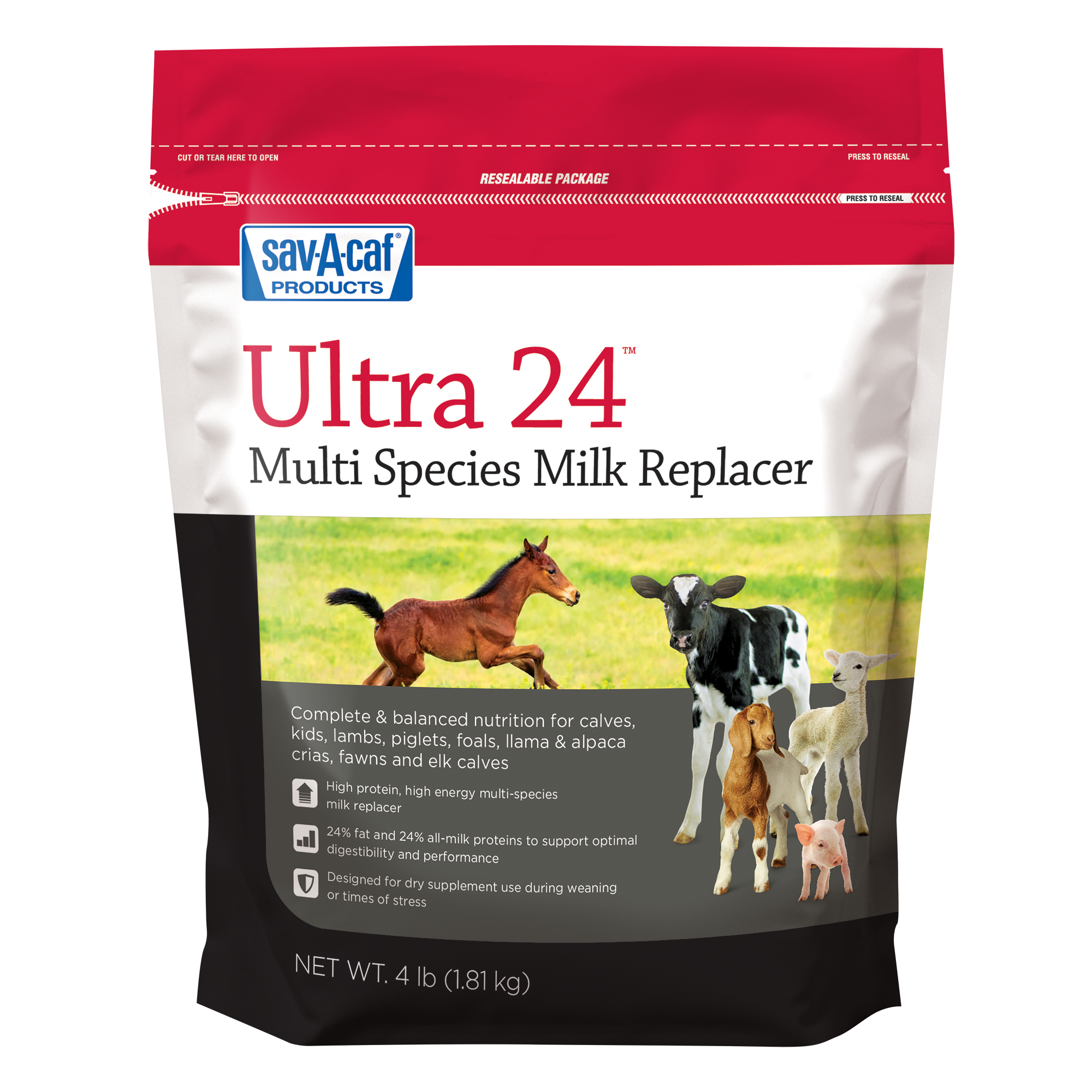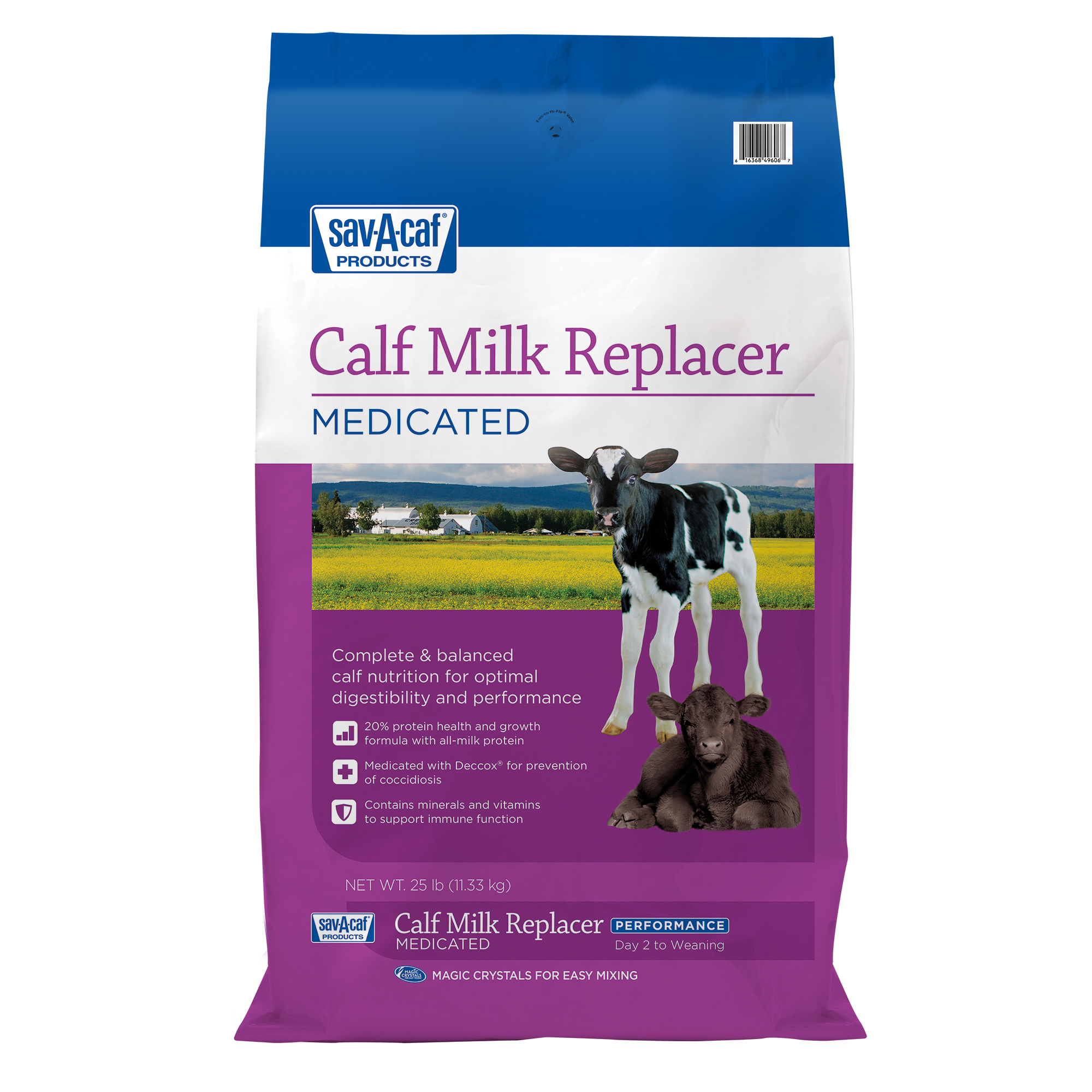
Top four tips for feeding your goat kids
After all the excitement of welcoming your new baby goat to your farm, what comes next? The answer is feeding. To best care for your kid, you must know how to feed them properly to provide them with the nutrition they need for proper growth and development. Below are a few of our top tips for feeding your baby goat.
1. Follow the directions
Always follow the mixing instructions on the package of milk replacer or colostrum replacer. Measure the powder by weight with a scale rather than by measuring by volume with a scoop or cup for accuracy. Lastly, you always want to mix until the powder is dissolved completely.
2. Feed at body temperature
Feeding your kid milk replacer that is at body temperature of 100-105 degrees Fahrenheit will encourage optimal consumption. However, as mentioned above, following the mixing instructions is vital as the recommended mixing temperature will vary by product formulation.
3. Sanitize your bottles
Sanitization is a very important aspect of feeding your goats and preventing illness. Bacteria grows very quickly on feeding equipment, so washing your bottles and nipples in soapy water followed by rinsing well after every feeding is necessary.
Moisture creates an optimal breeding ground for bacteria, so allow your equipment to thoroughly dry out between feedings. In addition to this, never mix new colostrum or milk replacer with already-mixed product that has been sitting out unrefrigerated.
Lastly, cracked or worn nipples can lead to over consumption or faster-than-usual feedings that can cause digestive upset. To prevent this, check your nipples often for damage.
4. Always keep an eye out for signs of illness
If your newborn kid happens to fall ill, start by contacting your veterinarian for your best source of information. It is important to note that when kids develop scours (diarrhea), you should make sure they are consuming enough nutrients and are staying hydrated.
Most critically, you will need to support proper levels of fluids and electrolytes by feeding an electrolyte supplement such as Sav-A-Caf® Electrolytes Plus™. However, electrolyte supplements do not contain all the nutrients of milk replacer so be sure to offer them in addition to the kid’s normal diet. Your kid may also benefit from additional calories to help address health challenges.
Find more tips on kid care and follow My Farm Journey on Facebook and Instagram for additional insights.



